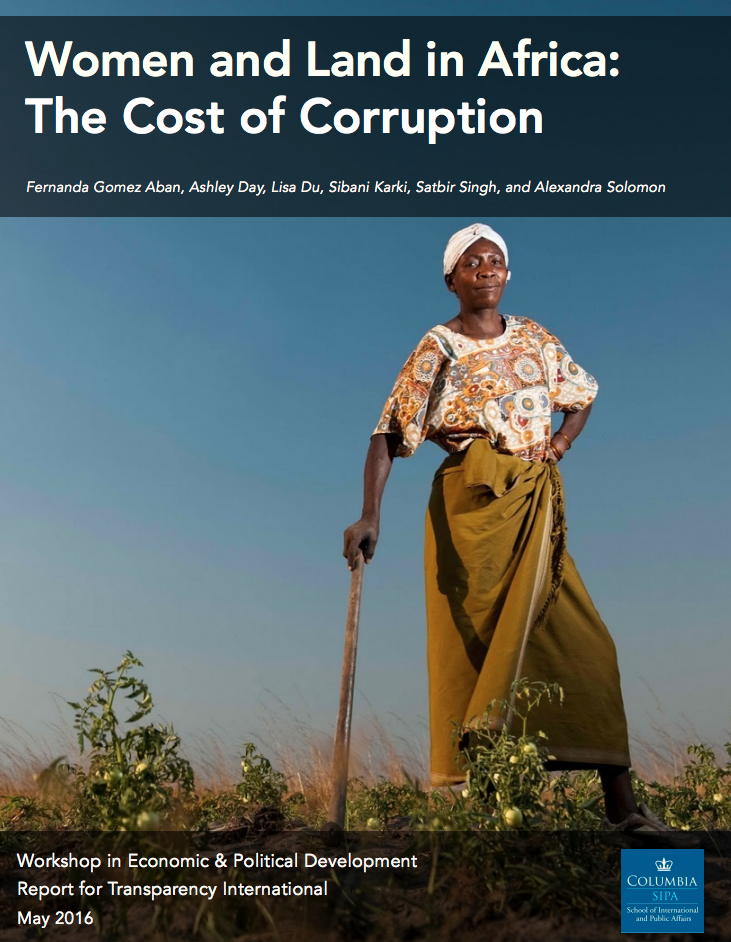Resource information
This report sits at the intersection of gender, land administration and corruption – an important issue area that is largely under-researched. Women’s rights to access, control and own land are consistently challenged and restricted by the gendered nature of corruption in the land sector, which disproportionately affects women. In both Ghana and Zimbabwe, these issues are exacerbated by the dual systems of land management and governance. The unclear and inconsistent relationship between customary and formal institutions, as well as the patriarchal foundations upon which they operate, begs further research and remedy. This report aims to add to the body of knowledge that informs the policy and practical changes necessary to foster gender equality, and eradicate corruption in land administration.
This study was undertaken by a team of six graduate students from Columbia’s School of International and Public Affairs (SIPA) through SIPA’s Workshop in Development Practice. This analysis of the gendered effects of corruption in the land sector will add to a body of literature that is, as of now, quite limited and underdeveloped worldwide. Without a nuanced understanding and evidence of the complex intersection of gender, land and corruption, policymakers are hesitant and lack the leverage to call for anti-corruption measures and reforms.
In Transparency International's “Women, Land and Corruption in Africa” (WLCA) project, the organization’s main goal is to understand the effects of corruption on women’s land ownership in Ghana, Uganda and Zimbabwe in order to direct anti-corruption advocacy efforts to focus on women’s land rights. This project will aid in the development of strong advocacy tools to be used in development and governance initiatives in both Ghana and Zimbabwe.


